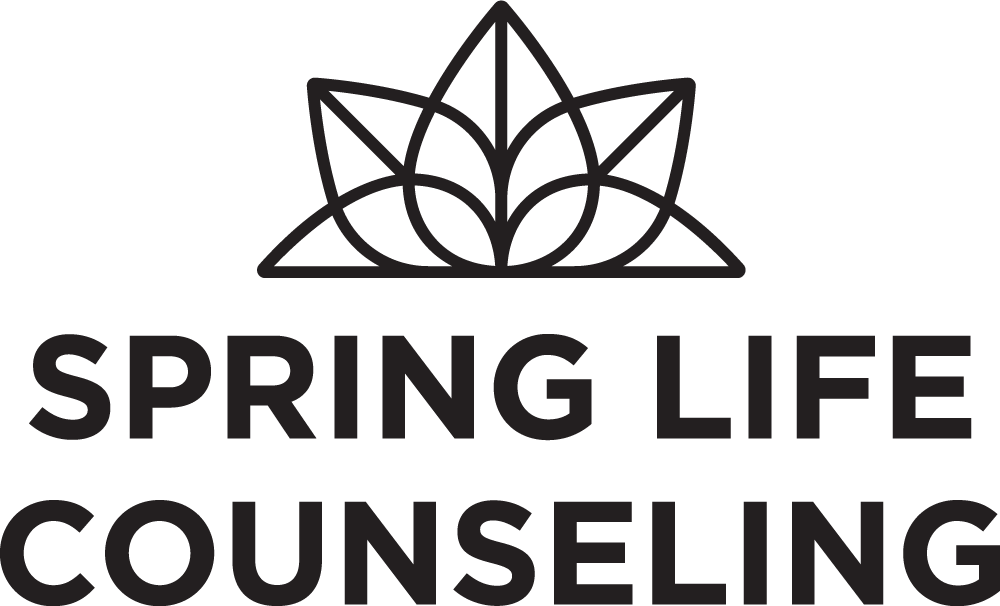Improving Your Health Through 3 Types of Relationships
John Donne is credited with a meditation that includes this often cited line, "No man is an island, entire of itself."
This quote reflects the inter-connectedness of all humanity and how false it is to consider your own life and choices apart from the whole. Along these same lines, a model of therapy known as Reconciliation Focused Counseling submits that healthy individuals are connected in three relational domains: to God, to oneself, and to others. The higher degree of connection in these three types of relationships, the healthier a life an individual will enjoy.
This concept is also reflected in Jesus's own words in Mark 12:30-31 and several other places throughout scripture, "Love the Lord your God with all your heart and with all your soul and with all your mind and with all your strength. The second is this: Love your neighbor as yourself. There is no commandment greater than these."In this verse we again see the three types of relationships noted...love for God, love for neighbor, love for self.
The bottom line is this: the higher degree of connection in each of these three types of relationship, the healthier the person.
Today I want to show you what connection in each of these relationships looks like, and provide a way to assess your own degree of connection in each area. As a bonus, this is a great tool to asses how you can target encouragement in the lives of those around you as they purse health and fullness.Let's look at what a strong connection looks like in each type of relationship.
Connection to God:
Hallmarks of a strong connection with God begin with things you can observe. Do you spend time in prayer with God? Do you attend church? Do you read the bible? But connection with God also goes so far beyond these easily observable traits. Do you feel like you have the right to talk to God? Are you angry or frustrated with him over something? Do you feel like you have to earn the right to be heard by God or accepted by him? Do you sense disappointment from him? The list could go on but the main idea here is; do you enjoy God and look to involve him in your life? Resting in the love of God is the picture of a rich connection with God. Everybody has room for improvement in this area, but some have more trouble than others when it comes to resting in God's love for us.
Symptoms of not connecting well with God: this can look like anxiety because a lack of trusting in God's goodness (note: this is not the source of everyone's anxiety), anger problems, a melancholy disposition because you don't believe that God has your best in mind. Aside from relational friction with God, some people just don't connect with God at all and aren't sure what the point would be. To this point I would say that all of the happiness research of recent years indicates that connecting with something bigger than yourself is imperative to health and happiness, and beginning to incorporate God into your life could be a rich source for strength, balance, meaning and love.
Connection to Self:
Hallmarks of a strong connection with self look like awareness of your own emotions and a lack of self-judgement. People who experience a strong connection with themselves know what they are feeling and often why they are feeling that way. They don't stuff emotions down, ignoring them. And they don't make too much out of their own experiences either (idolatry). They give themselves permission to be human and enjoy the freedom that brings.Symptoms of not connecting well with yourself can either stem from under-connection or over-connection. Under-connection with self looks like not checking in with yourself or being aware of your feelings. You just keep your head down and trudge through life. This generally leads to symptoms of depression. Over-connection with self often presents like anxiety or self-centeredness. You're too connected with yourself and sensitive to everything that comes your way in a day or what might come tomorrow.
Connection to Others:
Hallmarks of a strong connection with others look like having a few people that you can count on, who know you well, and who you make an effort to support in their lives as well. You feel both known and loved, and feel like you know and love a few others as well. The importance isn't placed on the number of people who you know and who know you, but on the depth of connection.Symptoms of not connecting well with others can again fall into the categories of under- or over-connection. If you're under-connected with others, you have a very limited social support that probably involves surface level communication with those you come into contact regularly. You may make conversation with the people in your life but you don't feel like anyone really knows what goes on internally for you. Over-connection with others is also problematic because you can make an idol out of a relationship(s) in your life. The lines are blurred between where you stop and where another begins. You may feel taken advantage of or like you don't really understand how boundaries and relationships really work.
So how does this apply to you? Maybe as you read, you already sensed some feedback regarding which type of relationships are strengths for you or which needs to be strengthened the most. Be responsible with that feedback and begin to make a plan to increase the quality of connection in that area of your life.
Do you have an area of under or over connection in your life? Do you need some help removing roadblocks to a particular relationship? Does looking at your life through the three relational domains help bring any clarity? Are you looking for resources in how to best strengthen a relationship? I'm here to help! Please always feel free to contact me with questions like this or anything else!Check back soon for how the order of the three types of relationship is no accident, how and why self-love can be unfortunately overlooked, and how the relational domains are all inter-connected.

